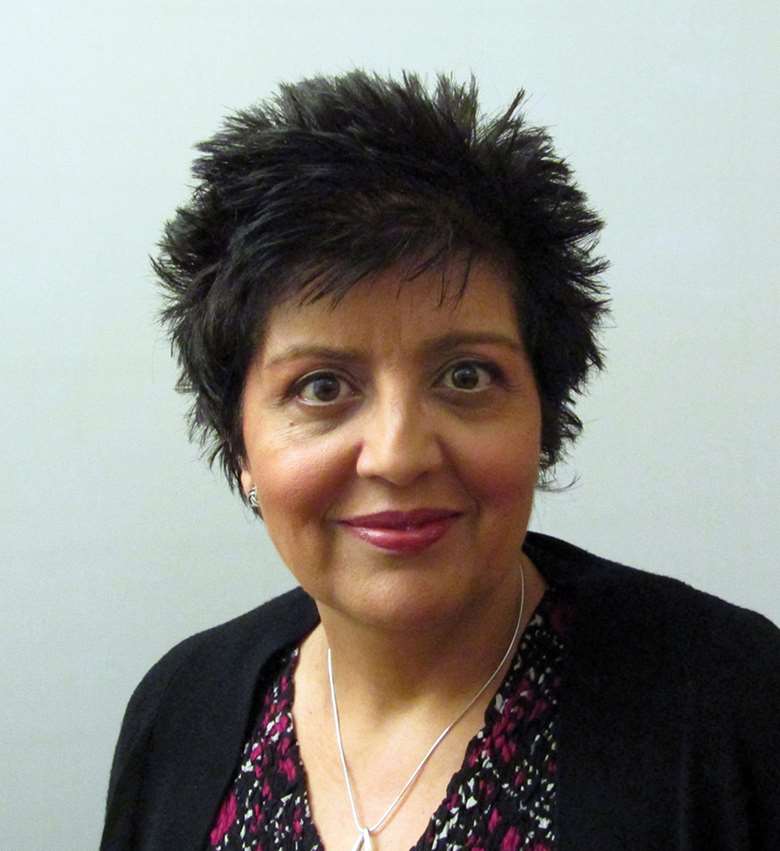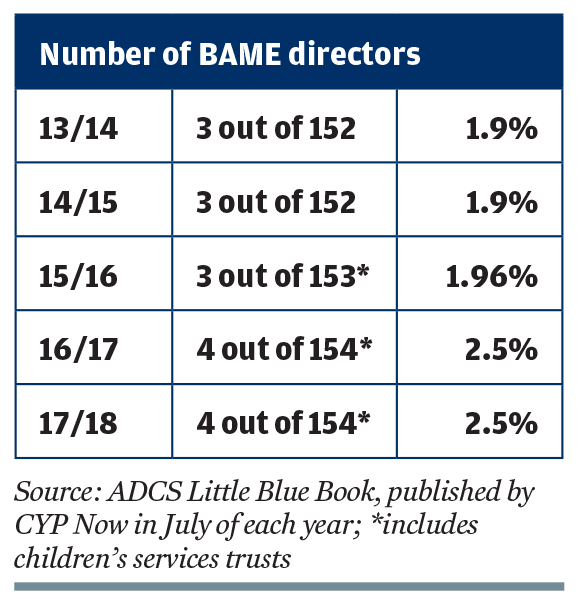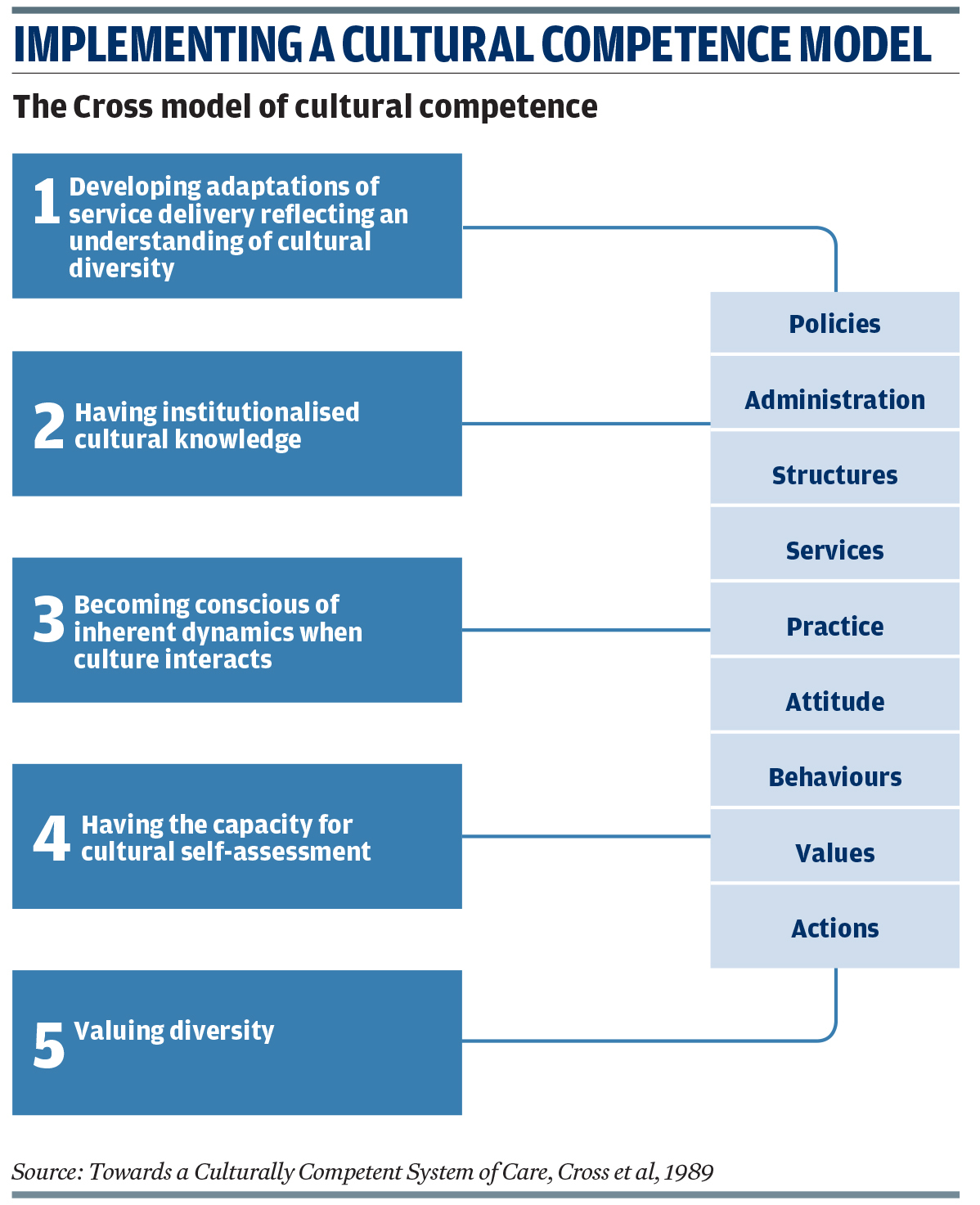Developing cultural competence in children's services organisations
Meera Spillett
Tuesday, January 30, 2018
Paper from former director of children's services highlights lack of progress in developing leadership skills of black, Asian and minority ethnic professionals, and provides tools to help create culturally competent organisations.

In 2014, having supported The Staff College to deliver the Black and Asian Leadership Initiative (BALI), I wrote a paper examining why there were so few black senior leaders in children's services and across other chief officer positions.
The paper highlighted the obstacles faced by black applicants and how process discrimination starts at the very point organisations seek to recruit to vacant leadership posts.
It also identified how additional mantles are given to those who are successfully recruited, including the hopes of other black staff - and diverse communities - that historic discrimination will be understood and addressed, and sometimes the collective sigh of relief that organisations give as they pass the "equality" brief over to the black member of the team.
In addition, the paper outlined the sad facts that black, Asian and minority ethnic (BAME) staff are disproportionately represented in grievance, disciplinary and employment processes in organisations.
The paper reflected on the still relevant definition of institutional racism by Sir William Macpherson in his 1999 report. He defines it as: "The collective failure of an organisation to provide an appropriate and professional service to people because of their colour, culture or ethnic origin. It can be seen or detected in processes, attitudes and behaviour which amount to discrimination through unwitting prejudice, ignorance, thoughtlessness and racial sterotyping."
I called for chief executives and directors to review their organisational barriers and obstacles.
Four years on, there are still too few BAME leaders in children's services and at chief officer levels in proportion to the often diverse background of their staff groups and communities (see table).

It seems that many are still recruiting in their own image, and suggests most children's services departments have yet to recognise the need for a change in culture.
That is why I have written a follow-up paper - Cultural Competence: Promoting Leadership and Organisational Change, published last month by The Staff College - to support children's services leaders in this process.
Cultural competence
Implementing a cultural competence approach would tackle shortcomings in the processes, attitudes and behaviour of organisations - the very issues Macpherson's definition of institutional racism included - and could herald a change in the numbers.
Some previous BALI participants have decided, on balance, not to go into senior leadership roles because of the many obstacles and additional expectations placed upon them.
If we don't change at an organisational level, we will not encourage more BAME applicants to break through the glass ceiling and go on to navigate their way through the broken glass that awaits them without wounding themselves.
Just like any other set of staff competences within appraisals, cultural competence works at both an organisational and individual level. Organisationally, it enables a deeper understanding of the diverse needs of local communities particularly within the context of extremism, hyper segregation and evidence that shows BAME populations continue to be over-represented in exclusions, criminal and mental health arenas to name just a few.
It calls for a deeper understanding of what life is like for all residents and the disparity that can exist in their respective life experiences thus avoiding the dissonance between them. It supports organisations to consider how best to tackle those thorny issues and endows practitioners with the skills to appropriately and confidently meet the needs of their community.
Supporting BAME staff
At the same time, it creates the conditions to support BAME staff to survive and thrive in their organisations and reach their full potential in management and leadership roles. It is a win-win for organisations - and it is there for the taking.
Implementing a comprehensive cultural competence approach will require organisations to review their own values, beliefs, policies and procedures, including a reflection of how their organisation can overcome the barriers and issues identified in the 2014 paper.
If a lack of available resources and management tools has perhaps stopped progression by organisations, the new paper brings together a full set of ready to use tools and checklists that can form a blueprint for this work.
In addition, a third article planned that will consider how a culturally competent approach can support organisations in dealing with extremism and potential radicalisation.
The level of cultural competence and an ability to improve it will be strongly influenced by ensuring a foundation for change starts with every single individual, whether they are black or white. Just like any appraisal should start with self-reflection, individuals across the whole organisation including governance structures must begin with their own self-assessment.
The tools support children's practitioners and leaders to reflect on their inner most characteristics, views, beliefs and values - whether these are known only to them or known/conveyed, perhaps unconsciously, to others.
For example, would an individual know the answer to the questions: "How would others describe my views on racism?" or "Can you give some examples of oppression and where you have seen it?" The time taken to complete the self-assessment tool will measure the depth of reflection undertaken; a cursory completion in minutes will be superficial at best.
Challenging issues
The tool is designed to challenge and provoke exploration of sometimes uncomfortable issues.
Having tried the self-assessment out on all BAME groups and mixed groups, the feelings and emotions evoked have commonality: a lack of knowledge that they should have known answers to some of the questions and been able to give concrete examples; feelings of guilt that they should have known more; and significant displacement activity, such as finding other tasks to do instead, with some challenging the wording, and not sure how to interpret the questions. It is not a tick box activity and will be meaningless if completed as one.
For practitioners and managers, undertaking the self-assessment will help identify any additional knowledge they need to gain. There is a specific tool that helps to identify the characteristics, attributes, knowledge and skills needed to successful support culturally competent practice.
They will require demonstration and can be continually improved as the world around communities changes and enable practice to adapt. If we are to be true lifelong learners, we can articulate how for example the "dynamics of difference" manifest themselves in the lives of children or through the different approaches by other agencies.
In the NHS, the ideas of cultural competence have been discussed. Perhaps a further benefit of the approach is the ability for it to be implemented in partner agencies, adding value to the outcomes experienced by children, young people and their parents.
Change requires commitment at the highest levels of leadership; I hope the case is made for the benefits of cultural competence particularly in the current context at both an organisational and practitioner level.
Communities deserve to be understood and children's practitioners deserve to be supported to work within the context of social upheaval, improving life chances for those currently experiencing poorer outcomes than their peers.
Senior leadership must reflect the diversity in our population.
WHAT IS CULTURAL COMPETENCE?
Writing in 1989, Cross et al defined cultural competence as "a set of congruent behaviours, attitudes and policies that come together in a system, agency or among professionals that enables effective work in cross-cultural situations".
Other definitions incorporate labels such as diversity approach, multiculturalism, inclusion, cultural literacy, cultural awareness, cultural sensitivity, diversity advantage and inter-culturalism. These can simply be knowledge gathering exercises, but cultural competence requires action.
Cross outlined five elements required at every level of an organisation to deliver cultural competency (see diagram, below). These should also be reflected in the characteristics and functions of an organisation.
Culturally competent organisations are able to appreciate and understand the different dynamics when different cultures interact and how these can lead to different outcomes for certain groups or individuals. They can introduce changes to service delivery that truly reflect their deeper understanding of cultural diversity.
Implementing a cultural competence approach requires individuals to examine their own beliefs. This is because it is a person's own values that most often drive their behaviour. Having different life experiences to those of a community can lead to decisions being made that lack understanding of the impact of policies, which in turn can result in conflict and frustration between authorities and communities.
Cross and other experts, such as Juli Coffin in 2007, have developed the concept of a cultural competence continuum to give organisations and individuals a way to critically assess themselves. It identifies six stages along the continuum: cultural destructiveness; cultural incapacity; cultural blindness; cultural pre-competence; cultural competence; and cultural proficiency. The model has a detailed description of organisational characteristics at each stage of the continuum.

- Meera Spillett is former director of children's services at Oxfordshire County Council and social services inspector. She is an associate at the Staff College, Association of Directors of Children's Services and Cordis Bright, and is supporting the planning for the fifth cohort of the Black and Asian Leadership Programme for The Staff College. More from hello@thestaffcollege.uk
FURTHER READING
Cultural Competence: Promoting leadership and organisational change, The Staff College, January 2018
Leadership Imbalance: Black and Asian Leaders Missing in Action, The Staff College, February 2014
Report of the Stephen Lawrence Inquiry, Sir William Macpherson, Home Office, February 1999




